September 2021

September 2021
COVID-19 has changed many things. One of the biggest changes has been the shift to “non-contact” practices. This shift has also changed Korean holidays since people are not as free to move around as before over fears of spreading COVID-19. In response to this, an online system has been established to ensure families can maintain contact with each other while “virtually” visiting the graves of their ancestors to pay respects. In short, a new holiday custom has emerged from the limitations placed on family gatherings by COVID-19.
Written by
Lee Ji-sung
Photo courtesy of
Korean Funeral Culture
& Policy Institute
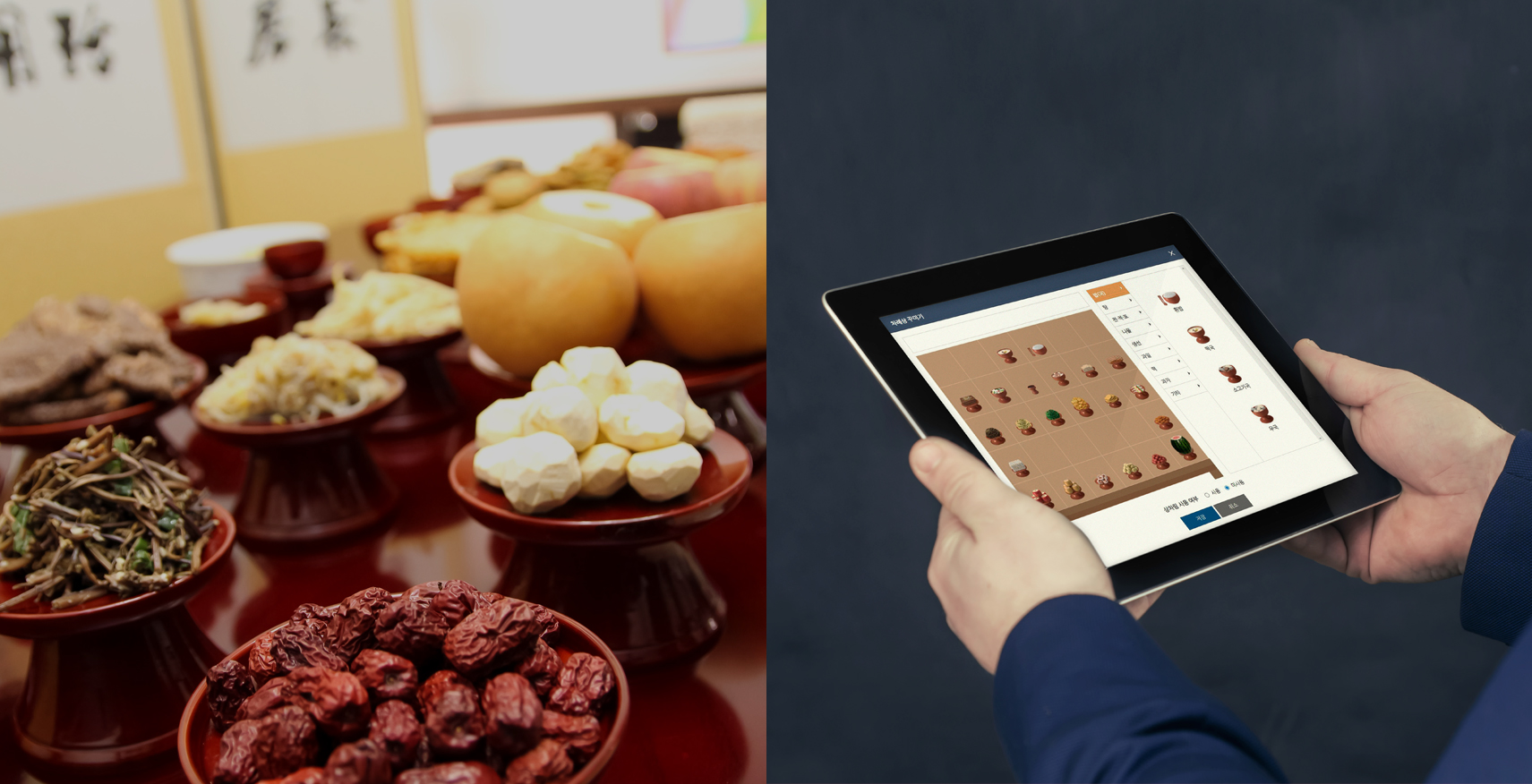 © shutterstock
© shutterstock
The holidays are when relatives come together to strengthen family ties while visiting the graves of their ancestors to give thanks and reflect on their memories. When families who are spread far and wide come together, they ask about each other and visit the graves of their ancestors to pay their respects. Due to COVID-19, however, visiting gravesites with relatives and conducting family gatherings have become difficult.
The Korean Funeral Culture & Policy Institute (KFCP) has developed a virtual space for families to conduct visits to ancestral gravesites through a social media network-based system. KFCP Director Ko Kyung-suk explained why his organization created the new system, saying “visiting ancestral gravesites is a beautiful custom of the Korean people. It’s an element of our culture that we must preserve and sustain. The KFCP developed a new system for people to conduct ancestral gravesite visits virtually so they can conduct these visits in a contact-free way.”
He admitted there had been concerns about the new system given that visiting ancestral gravesites in person is such an old custom. “Korea’s holidays are focused on bringing families together in one place to strengthen family ties while paying respects to ancestors at their gravesites,” he said. “Conducting the ancestral grave visits online does not give families the opportunity to meet each other, which we worried could tarnish the fundamental meaning of the holiday.” Ko convincingly explained, however, that the new online system is focused on ensuring people who cannot visit ancestral graves because of COVID-19 have a way to do so. He also noted that the system is a must-have for Koreans living abroad.
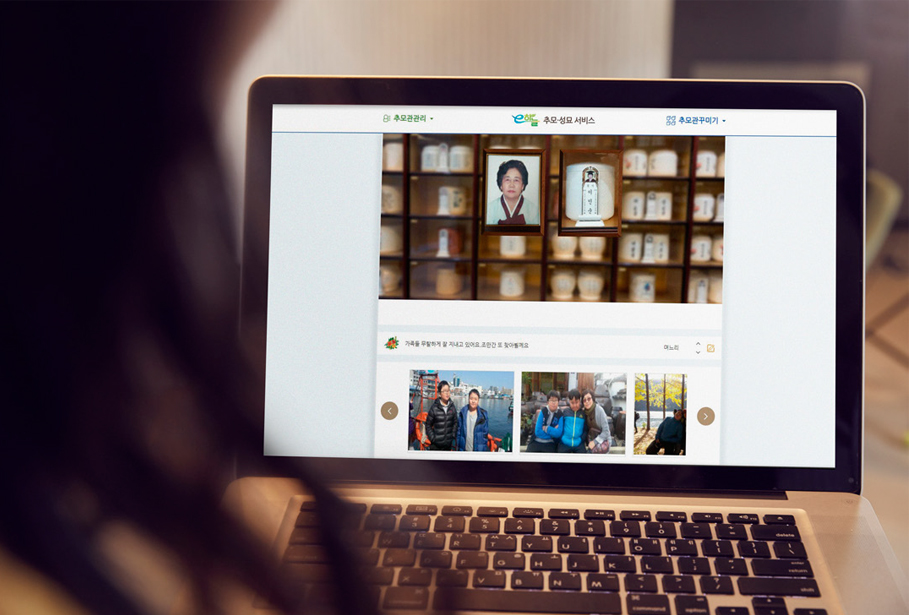 A user looks around a personalized online memorial hall.
A user looks around a personalized online memorial hall.
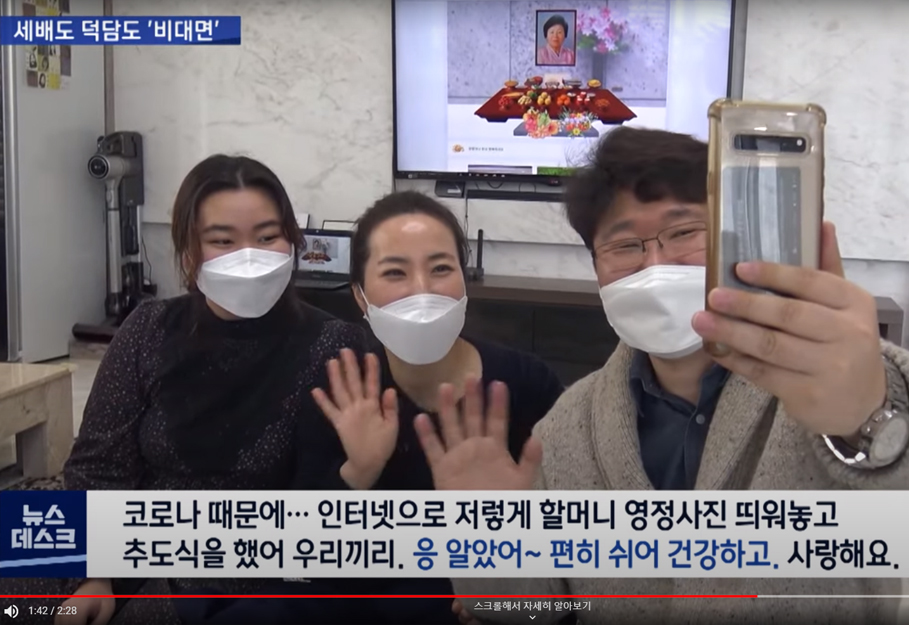 A family conducts online memorial rites.© MBC NEWSDESK
A family conducts online memorial rites.© MBC NEWSDESK
After a great deal of careful thought, the KFCP developed the online system to ensure that the virtual visits would become not just another formality―a concern voiced by some people. The system allows people to set up their own ancestral rites tables and gives them the opportunity to ask burial sites for images of where the bodies of their ancestors are laid. Through the system, people can pay their respects to their ancestors through writing, recordings or video, and family members can ask each other questions or share well-wishes.
The system, which first began operation during Chuseok last year, now has a total of 470,000 users as of July of this year. Explaining why so many people have chosen the system, Ko said, “Given the difficulties for families to gather because of COVID-19, the service has overcome the limitations placed on families and relatives for meeting physically and provides them with a new place to gather.” Much of the distrust toward the online system has vanished as well.
As this shows, the online system is on its way to establishing itself as a new custom for Chuseok. “We continue to receive requests asking us to continue operating the online system,” Ko said. “We plan to further finetune the system so it can become yet another custom for the holiday.”
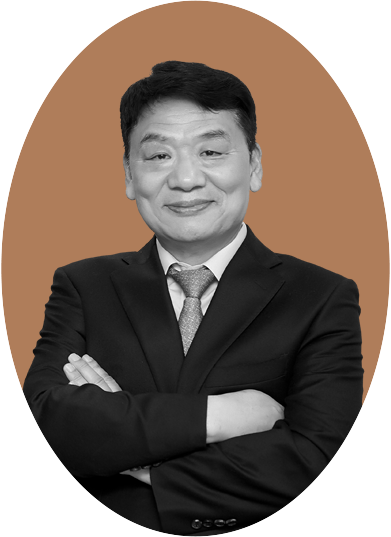
Conversation with
Ko Kyung-Suk
Q. What kinds of values did you want to place in the online system for conducting memorials and visits to ancestral graves?
The main focus was “togetherness,” a key focus of Chuseok. Given that it is difficult to gather as family these days due to COVID-19, we aimed to create a virtual place for communication where families could pay respects to their ancestors and share their thoughts and prayers. We created such a place using social media networking technology so that families can share writings memorializing their ancestors or pictures of memories shared with their ancestors. This space allows families living far away from each other in Korea or abroad to strengthen their ties with one another.
Q. What was the biggest focus during the development of the system?
We explored many ways that would allow users to feel like they are giving ancestral rites in person. For example, there are different ways of conducting ancestral rites depending on where you live and across different families. There’s even different kinds of food that go on ancestral rites tables. We worked hard to ensure there were a diverse range of photos of ancestral rites food in the system to reflect these differences, and we continue to increase the number of these images of food based on user requests.
Q. What kind of role will the system play after COVID-19 is over?
While COVID-19 was the reason why the system was developed, we expect the system to establish itself as yet another custom in Korea’s funeral culture after the end of the pandemic. It can live side-by-side with existing practices. It’s particularly difficult for people living abroad to visit relatives or the gravesites of their parents in Korea during the holidays. We believe that the system will somewhat alleviate this unfortunate state of affairs.
In nearly all matters, seeing and experiencing are two different things. Public holidays are no exception. To locals, Korean holiday festivities come naturally and are taken for granted, but to foreign residents, they can be a bit overwhelming. Though Ipek Damla Jang of Turkey learned about Korean holidays when she was a foreign student in Korea, she has been experiencing them first-hand since marrying a Korean man. Ipek’s personal story offers insight into a different aspect of the Korean holiday experience.
![]()
Written by
Yu Pureum
Photographed by
Ipek Damla Jang
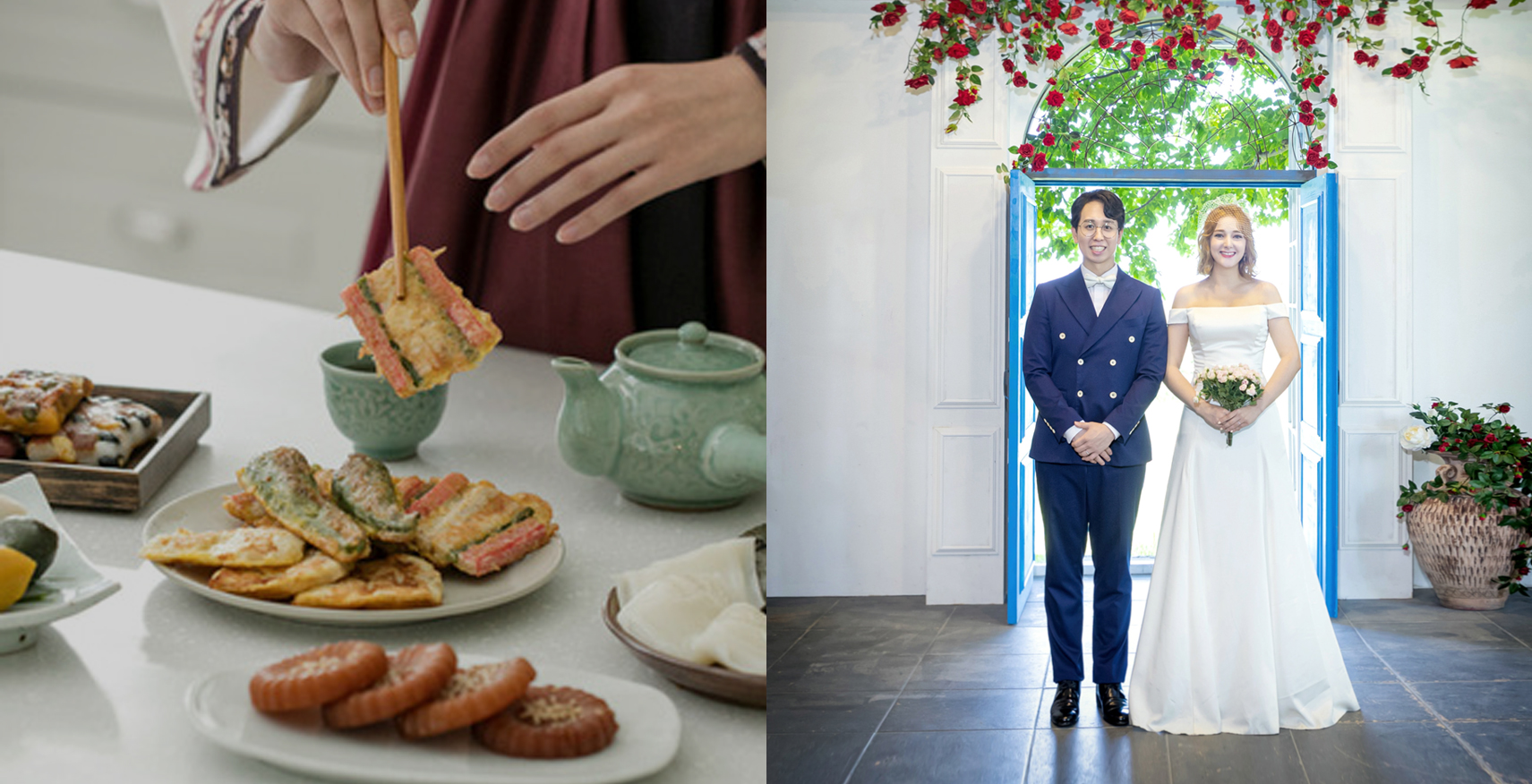 © imagetoday
© imagetoday
Ipek Damla Jang, a native of Turkey, first arrived in Korea five years ago. She came to Korea as a foreign student out of her interest in the Korean language, charmed by its similarities with the Turkish language. She studied for one and a half years in Korea, keeping herself busy studying, working part-time and socializing with new friends. She had little time to feel homesick or lonely, but during the holidays, she became keenly aware how much she missed her family and how far away from home she was.
Every time a long holiday approached, one or two colleagues at work would seek Ipek out. They wanted her to cover for their shift since they knew she would still be in Seoul, while nearly all of her Korean friends would be out of town visiting their hometowns for the holidays.
Realizing the significance of major holidays in Korea, Ipek gladly took their shifts. Being stuck at work by herself only added to her loneliness. Nevertheless, Korean holidays seemed like pleasant and warm occasions, at least according to her friends’ descriptions. Returning friends usually said they ate and chatted with family and relatives they hadn’t seen in a long while. A few friends would bring some holiday dishes from their home for Ipek to try.
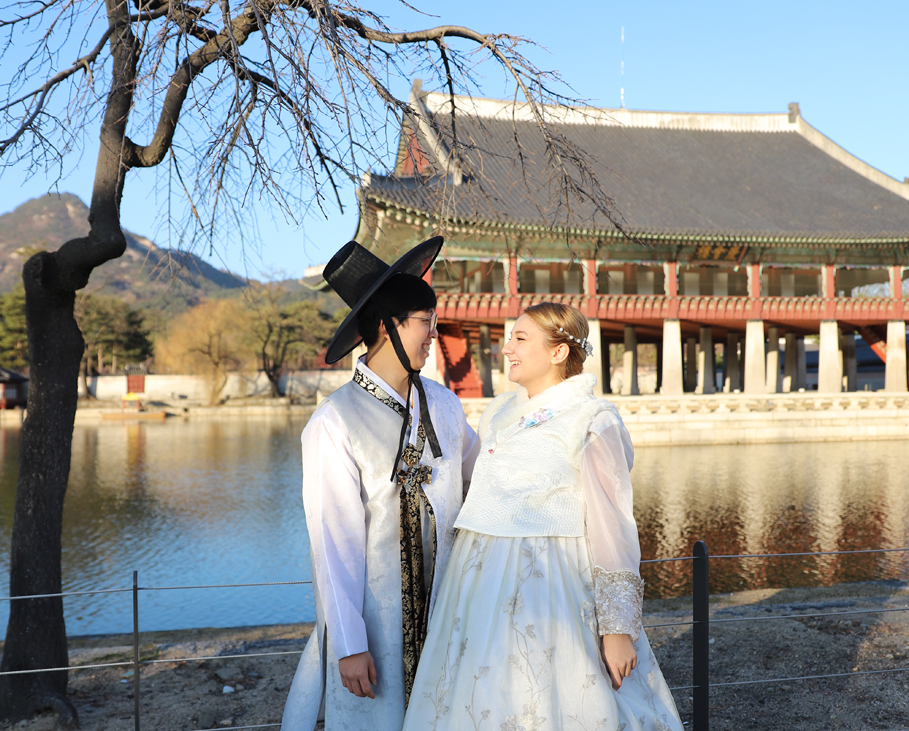 Ipek met her husband in Korea.
Ipek met her husband in Korea.
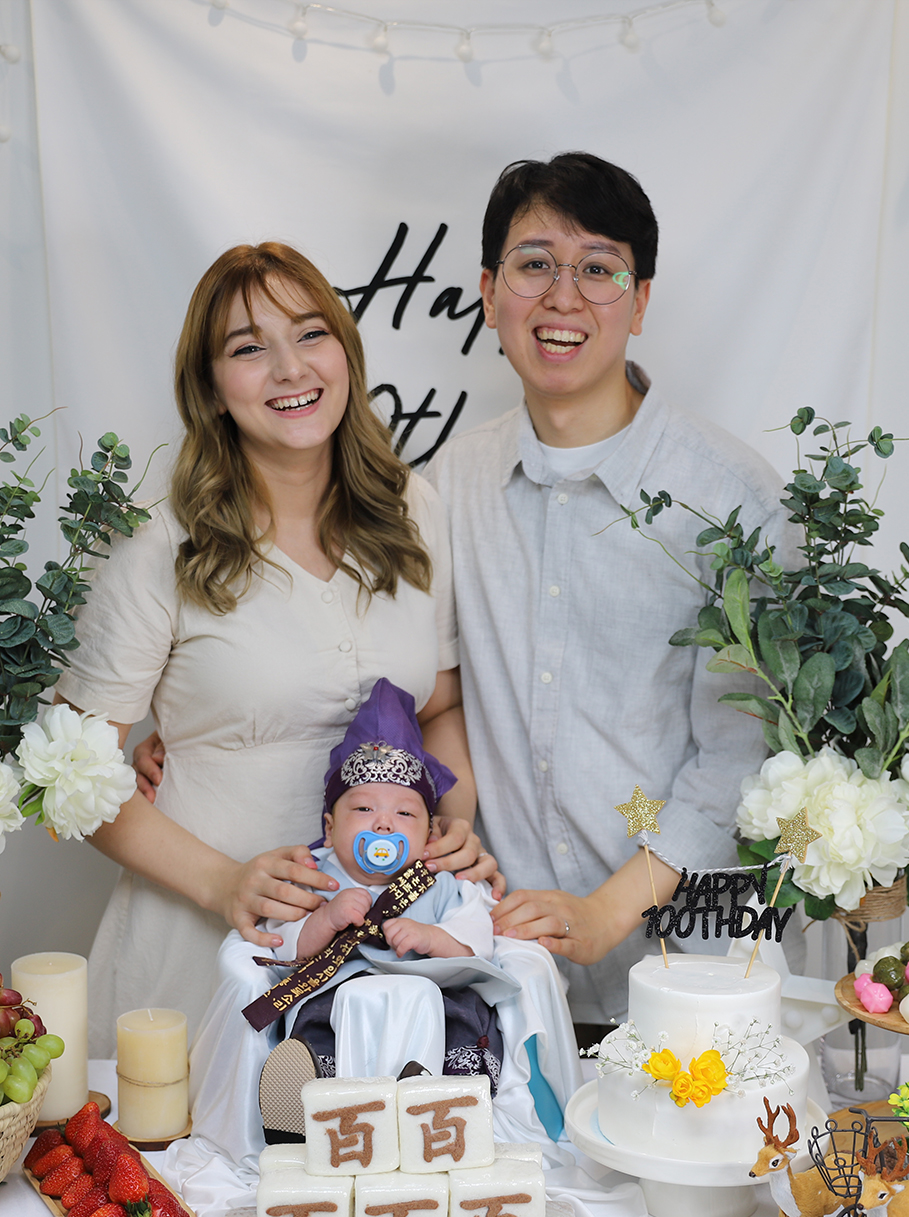 Ipek poses for a family photo.
Ipek poses for a family photo.
After finishing her studies in Korea, Ipek returned to Turkey, but three months later she returned, albeit with a different legal status. She was no longer a foreign student but a Korean citizen―and married. After marrying a Korean man she had met while living in Korea, she decided to settle down permanently in the country.
Ipek gained a new family, a new name and the title myeoneuri, which means “daughter-in-law.” Her parents-in-law treated her warmly like a daughter, but becoming part of her new family didn’t feel real. Spending her first holiday at her in-law’s place, however, changed all that. During this time, she went to the market with her in-laws and prepared food for the ancestral rite commonly performed on Korea’s major holidays. Thus, she no longer felt like a stranger, but a family member with a shared culture.
To Ipek, her husband and his family are her only family in Korea. However, she cannot visit them often because they live far away, and COVID-19 has made matters worse. She wants her Korean and Turkish families to dote on her two-year-old son, but she cannot visit either, much to her frustration.
Things are looking up though. She is now very much looking forward to the upcoming Chuseok, Korea’s major autumn holiday, when Korean families gather at long last to celebrate the occasion with a feast.

Conversation with
Ipek Damla Jang
Q. Do you have a memorable episode related to the Korean holidays?
When I was a foreign student, I once spent a Korean holiday at my friend’s house. It was my very first time watching the Korean ancestral rite in person. After the family members made prostrations to the altar, everyone suddenly went to another room. So I asked my friend why they moved to another room. After the prostrations, the spirits of the grandparents would visit, so the living family members had to excuse themselves to another room so as not to interfere with the meal enjoyed by their ancestors. Thinking how such details were so new to me, I saw all the family members suddenly come out of the room, and this time they started eating the dishes on the ceremonial table. I remember being totally confused and unsure if we were allowed to eat the dishes already eaten by the spirits.
Q. How was your first Korean holiday celebrated as a member of a Korean family?
For a while after my marriage, we could not visit my in-laws since my husband was busy with work and I became pregnant. After I gave birth and my husband could take some time off, we went to my in-laws’ place to spend our first holiday together. Following the Korean New Year’s Day tradition, we did the New Year’s bow to our parents and had a great time preparing for the ancestral rite. Just being together with family members who live so far away was wonderful. When I was growing up in Turkey, my family also would get together for the holidays. The loss of such a tradition made me miss the old days.
Q. Which Korean holiday traditions would you like to introduce to your family in Turkey?
I’d like to introduce them to Korean ceremonial culture. In Turkey, people sometimes visit graves and pray there, but there is no tradition of performing an ancestral rite according to decorum. Just as I found it very interesting to see the rules during the rite whereby each dish on the ceremonial table was precisely placed and the living family members excused themselves to another room after making ritual offerings, my Turkish family will find Korean ritual practices very interesting.